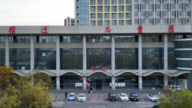【新唐人2011年11月17日讯】中国的网路速度和收费一直深受网民关注。大陆一位电信专家号称,大陆网速水平中等偏上,价格偏低。这个说法遭到大部分网友的质疑。下面,我们就来看看,中国的网速到底是快还是慢,收费是便宜还是贵?
针对网友对中国网速和网费的各种议论,《中国新闻网》14号报导,中国电信专家、北京邮电大学教授阚凯力,在做客《中新网》视频访谈时表示,“从世界范围来看,中国的网速是中等偏上的;从绝对价格来说,网费是中等偏低的。”
此言一出,网民哗然。网友愤怒回应:“说这种话也不怕被雷劈,阚主任绝对的道德偏低!”
阚凯力还举例说,他的一个朋友住在美国硅谷,家里的宽带也不过700Kbps。网友质问,这个是普偏现象还是个案?
今年9月份,美国网路数据传输公司Pando Networks发布的全球网速排名显示,韩国网际网路下载速度位居全球之首,而中国网速只有韩国的九分之一。
8月份,《中国信息社会发展报告2010》显示,加上收入差距的因素,中国的宽带资费水平相当于韩国的124倍!但是,提供的却是让人不满意的网速。
旅居荷兰的软体工程师立里表示,不同的服务商会有不同的网路速度。因为人口密集,中国引入光纤技术后,国内的网路速度有所提高。但中国网路存在的主要问题是,国际带宽的速度偏低。比如YOUTUBE即使没有被当局封锁,大陆网民访问时就会觉得网速不够。
针对收费问题,立里告诉记者,以ADSL宽带为例,荷兰的技术已经可以达到下载20Mbps,上传1Mbps,而荷兰的人均收入税前大概3000欧元。
立里:“在荷兰,一个月大概17欧到25欧之间,跟它的打折各不相同有关。按照汇率算,200块到300块人民币之间。你按这个绝对值,汇率来比较,它可能比中国国内的ADSL收费要高。比如说以购买力评价来比的话,你就看这个17欧、18欧在荷兰人的人均收入中间,占了多少比例。以及中国的一百到二百,在人均收入占多少比例。”
立里指出,中国的网路收费还包含了各种政府税费,这也是价格居高不下的原因。
很多网友谈到,中共的网路防火墙造成网速减慢。立里表示,中共的防火墙不是直接劫持,而是通过干扰和窃听的手段来实施,在技术上来讲,一般不会有直接影响。但是,在间接上会造成网速降低。
立里:“比如GMAIL,对它做不定期的干扰,对它做定时,一个小时的干扰。很多朋友经过技术上的测试,已经发现:它(长城防火墙)每小时20分钟通,20分钟断,20分钟通,它用这种方式干扰你,让你没法好好用;逐步的迫使这些用户放弃这些更加安全更加方便的GMAIL,更加能确保自由通信的 GMAIL,转到墙内的这些有关键字过滤的网路信息Email流程上去。”
此外,立里还指出,中国的电信部门受到中共当局的压力,必须投资大量的钱,用在扩充监视设备上。他认为,如果电信部门把这些钱,像国外的公司那样,投资在增加网路带宽、提高服务质量上,势必会提高网速和服务质量。
新唐人记者易如、李静、黎安安采访报导。
China’s Internet Speed above Average with Lower Charges?
China’s internet speed and broadband charges have long
been drawing netizens’ concerns.
Recently, one of China’s telecom experts claimed that
China’s internet speed is above average with low charges.
Such a claim was questioned by most netizens.
Regarding various arguments on China’s internet speed
and broadband charges,
Kan Kaili, a telecom expert and professor at Beijing Univ.
of Post and Telecommunications said in an interview on
Chinanews.com, “Internationally, China’s internet speed
is above average, and in terms of absolute prices, China’s broadband charges are at a lower level. “
Kan’s remarks incited uproar among netizens.
A netizen angrily posted online, “Saying such words,
he doesn’t even fear being hit by lightning.
Director Kan’s moral is absolutely at a lower level!"
Kan Kaili even gave an example about one of his friends
who lives in Silicon Valley, but with his home broadband speed at only 700Kbps.
Netizens questioned Kan if this was a common
phenomenon or an individual case?
This September, U.S.-based Pando Networks released
a global ranking of Internet speeds.
South Korea topped the list,
while China’s speed is only one-ninth that of South Korea’s.
According to “China Information Society Report 2010″
which was issued this August and income gap adjusted,
China’s broadband charge equals 124 times that of
South Korea, but provides unsatisfactory network speeds.
Lili, a software engineer living in the Netherlands, said that
telecom service providers differ with their networking speeds.
Due to China’s population density, after introducing
the fiber-optic technology, China’s speed improved.
But the major problem with China’s Internet is the low speed
of international bandwidth.
For example, even if youtube.com were not blocked by
the CCP authorities,
China’s netizens would still find the speed not fast enough
to gain access to the website.
Lili cited an example that in the Netherlands,
ADSL downloading speed is at 20Mbps,
with uploading at 1Mbps. The average pretax income
in the Netherlands is around 3000 euros per capita.
Lili: “In the Netherlands, a monthly broadband charge is
about 17-25 euros, depending on the different discount rates.
That’s equivalent to RMB 200-300. In terms of absolute prices,
that’s higher than the ADSL charges in China.
But adjusted for Purchasing Power Parity, you may compare
the proportion of 17 euros that account for the Dutch income per head with that of RMB 100-200. “
Li argued that China’s network charges contains various
taxes and fees levied by the CCP authorities, which contribute to higher charges.
Many netizens believed that CCP’s network firewall causes
slow internet connection speed.
Li said that CCP’s internet firewall is not used for direct hijack,
but through interferences and wiretapping to achieve its aims.
So technically, it does not have a direct impact, but indirectly,
It can cause a slow internet connection speed.
Lili: “For example, the CCP authorities create periodic
interference and fix time hourly interference to GMAIL.
Technical tests conducted by my friends show
that the great firewall connects 20 minutes for each hour,
and disconnects for the next 20 minutes, and reconnects
for 20 minutes. In this way, it interferes with your using GMAIL,
gradually forcing users to give up using GMAIL
which can ensure more secure, more convenient and
freer communications, forcing you to transfer to domestic
email services that filter key words."
Moreover, Lili commented that China’s telecom sector is
under pressure from CCP authorities.
They have to invest vast amounts of money on
surveillance equipment.
Li said that if China’s telecom sector could be like their
foreign peers, to invest on increasing internet bandwidth and
improving service quality, that would lead to
improved internet speeds and quality of service.
NTD reporters Yi Ru, Li Jing and Li Anan



























